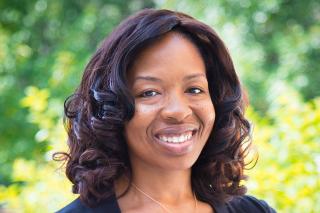School of Library and Information Science Assistant Professor Rebecca Davis has received a Laura Bush 21st Century Early Career Development Grant (award #RE-246393-OLS-20) for $140,834 from the Institute of Museum and Library Services. The grant will fund her research into the experience and use of academic libraries by African American undergraduate students.
The two-and-a-half-year project will include interviewing African American undergraduates at three types of four-year universities: Liberal Arts, Research Intensive, and Historically Black Colleges and Universities (HBCU) in four U.S. geographical regions. This project addresses a gap in the literature by seeking to explore two research questions:
- To what extent do African American students use academic library resources?
- For those students who choose to use the library, which services and resources (e.g. collections, reference, space, etc.) are African American students most and least likely to use, and why?
The research findings will help academic librarians create services and resources, support community development for African Americans, and perhaps identify skills or tools to develop the academic library workforce to better serve the African American community.
“There is a gap in research related to African Americans and their use of academic libraries,” says Davis. “My hope is that the findings from the grant study will lead to more research in this area.”
The idea for this project was first developed at the Proposal House organized for the College of Organizational, Computational, and Information Sciences faculty, in collaboration between the Center for Excellence in Teaching and the Office of Sponsored Programs.
Davis has done other research on underrepresented student groups. Her previous research focused on the use of academic libraries by female undergraduates in STEM-related fields. Through interviews with academic librarians, she determined how they were interacting with students and faculty. She found that undergraduate women in STEM valued the physical space in the library, enjoyed using group study rooms, whiteboards, technology, and quiet space. In co-ed institutions, female students in STEM often feel isolated. They viewed the library as a safe space, where they could meet in groups instead of going to a dorm or apartment.
Davis is now working on an article about the importance of physical space for undergraduate women in STEM and hopes to interview STEM faculty to gauge their interactions with students and librarians.

